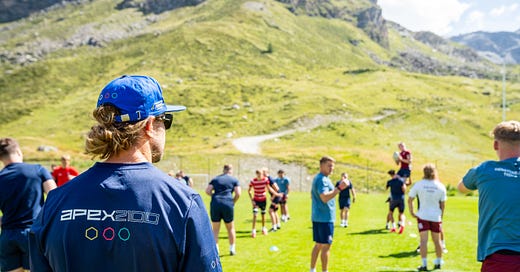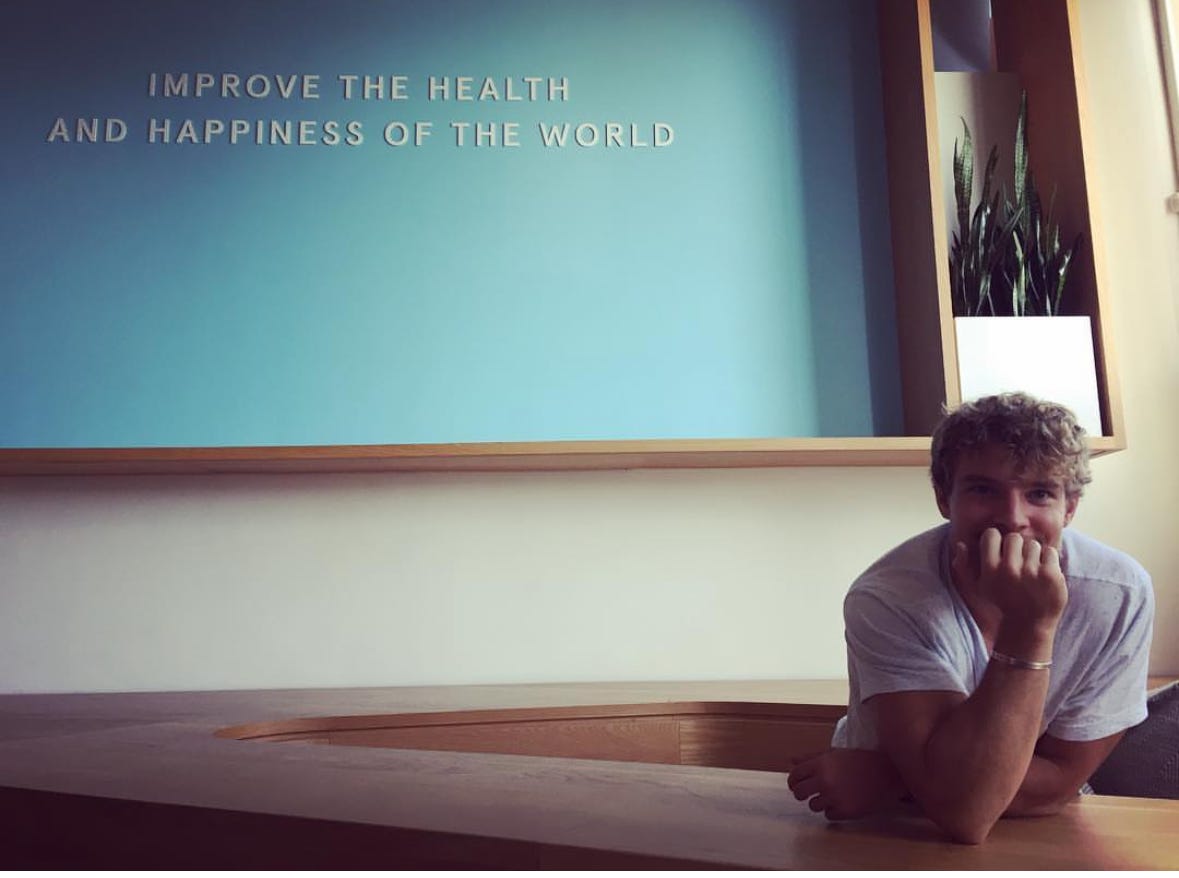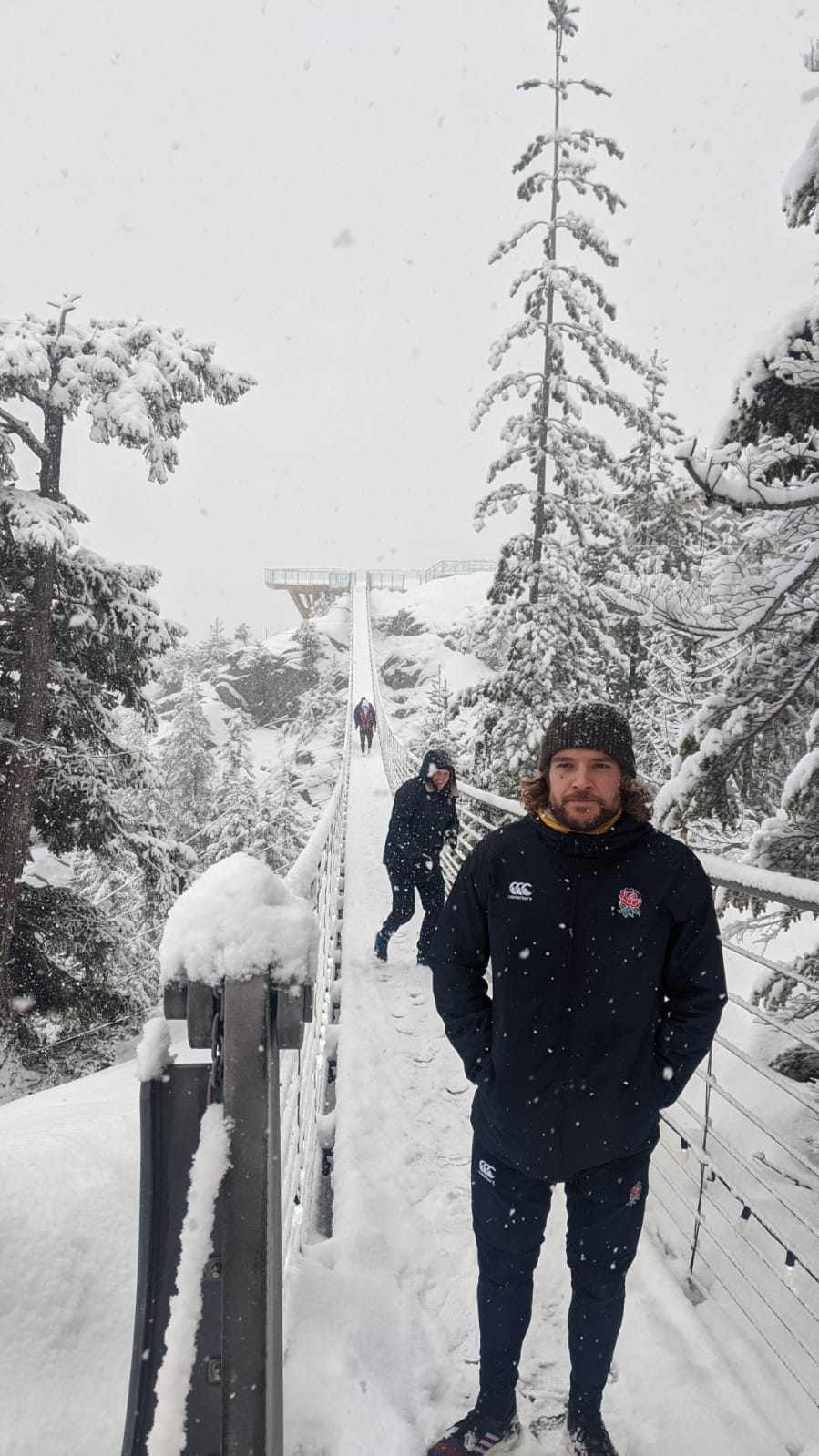Environment matters
From old gyms with rusty weights to high tech treadmills, potholed scrub to pristine turf, what impact does the physical environment have on the mindset of performance?
I have just wrapped up a week in the UAE doing some coaching and coach development. The one word I’d used to describe the physical environment this week was ‘hot’ - we were outside in 36 degrees celsius most days. Sweaty!
The physical environment will impact the experience of people working there. It isn’t everything - other human factors play a big part - but when building high-performance or top tier culture then considering the physical space you’re in is essential. In the UAE the high temperatures made exertion more testing for the players and this would occasionally manifest in irritation. The players were hot and bothered! The heat was an inescapable factor but we had to be mindful of it. In our 7s training the heat would be of great help in building physical, and therefore mental, stress. We used to sun to build mental resilience.
Here are some physical environments I have been in and their significance…
Rusty old gyms
On occasion I have trained in some dusty old gyms. The metal 20kilo plates coated in patches of rust, the mismatched dumbells in a random assortment in the corner, the bars layered with dirt and grime. I loved these spaces. I particularly loved these spaces when I had a gritty session to do, a session that was going to push me. It played into images in my mind of old school body builders pushing themselves during their workouts. The environment motivated me.
I have of course been in some snazzy workout spaces as well. Shiny chrome and high spec machines making it all feel futuristic and cutting edge. This too, in a different way motivated me to achieve what I wanted to. Feeling grateful to be in a top tier arena, feeling like I had all that I needed to be accurate and detailed. The spaces that feel reserved for the elite made me feel elite. The environment motivated me.
Tignes
I have the benefit of coaching in the French Alps every year. Way back in 2013 I trained in Tignes as a player prior to the 7s World Cup. In a nice circularity I now host training camps out there. (We use a different rugby field now because they built a ClubMed on top of the old one).
The training pitch is surrounded by snow topped mountains. Players step onto the turf and look around them at the panorama in awe. It is almost incongruous to have a rugby pitch in such a setting. The novelty of this location adds a hum of excitement, the buzz of a new experience distracting from any fear or negativity that might inhibit a session.
The Lensbury
For most of my career I trained in Teddington at the Lensbury Hotel. Google this place and you will see it is a beautiful setting, geared up for high paying hotel guests and private members.
There was one rugby pitch next to the river. I will never forget the winter mornings, sun coming up and lifting the mist off the water as we made our way out for an early morning training session. The other pitch was next to the tennis courts (reserved for the tennis club members). This was fine other than the odd complaint by the members about the use of ‘foul language from the rugby team’. And the adaptation that we had to use the toilets for a pee rather than ‘take a knee’ in the bush as can be custom when caught short mid session.
But the big shift during our time based at the Lensbury was the year it really felt like it was ours. Because we shared the space with many other users, we felt like guests. This was useful on the one hand because respecting others became a key element of our day to day. On the other hand, the feeling of having our own base was always a bit lacking.
One day, the branding went up. The ‘England 7s’ signs were bolted into the walls. It felt permanent. Our presence as a team bolted into this space. A shared home away from home where we would spend so much of our lives. Murals on walls and personalised lockers were excellent touches. We were always grateful to have such a great facility to train at every day. But to carve some of it out as our team owned space felt like it strengthened our identity.
My mate’s office
My mates Mike and Duncs founded an alcohol free beer business. Startup life dictates, more often than not, that you find a co-working space or rent an office space. I visited their office recently to get some free beer and merch. Mike told me how he had gone in one Sunday and painted the walls so they matched the branding. My mate Mike is NOT a DIY guy. But he is good with people. This was a wonderfully simple way of making the team feel at home in the new office space. It’s a small thing. Maybe some colleagues won’t give the wall colour a second thought. But subconsciously I suspect there would be a nudge to feel that they belong to something.
https://daysbrewing.com/pages/our-story
How can you adapt your physical environment?
Some easy wins…
Colour, brands, slogans, mission statement - easy to do and gains power over time. Seeing the mission statement every day will have an impact on your behaviour that day. It is more likely the team will act according to the mission statement. In the old Headspace HQ in Los Angeles, California, the superbly concise and powerful mission statement was on the wall of the entrance hall…
Music - There is no accounting for taste on this one! But the power of music to set a mood is astounding! Our changing room environments pre-game were substantially altered by the music playing.
Smell - (hear me out!) My former coach Ben Ryan works at Brentford Football Club and they actively adjust the aroma in different parts of the training centre to provoke a certain mood. What if everyone related a smell to your place of work, and it came with a feeling? Imagine how powerful that could be. You don’t have to do it to the same extent as a Premier League football club but is it something you have considered. (Maybe the smell of stale sweat in your gym is a good thing?!)
When the environment is out of your control?
Of course, there will be occasions when you are stuck with what you have. You have no opportunity to alter the physical environment you work in. What if it isn’t what you wanted, or what you thought was required for the task in hand? Well then it comes down to the skill of the leadership or the group to mentally re-frame.
If you don’t like something, change it. If you can’t change it, change your attitude
-Maya Angelou
Here are two examples:
When I got it wrong - We turned up for a training session in Hong Kong. Pitches for sessions changed throughout a week leading up to a tournament. That day we were allocated a patch of scrub, devoid of much grass and littered with ankle ruining potholes. I had returned from a serious ankle injury that year and I got hijacked by the potholes! In my mind, the uneven ground might as well have been scattered with mines. I couldn’t get my head into the session and it didn’t go well for me. I wanted a smooth surface on which to hone my skills. It wasn’t the environment I wanted and had expected and I couldn’t re-frame it in my mind.
When we got it right - In Vancouver, Canada, the competition took place inside BC Place, a wonderful indoor field. But the majority of training sessions in the week took place outside…in February! We turned up one day to a field covered in snow and ice with the mercury struggling to get above zero. The studs in our boots just about penetrated some of the frozen puddles, our hands were numb before we had even tried to catch a ball, the feeling in our toes long gone by the time we finished the ‘warm up’. How were we going to get a quality session done in these conditions? The tournament was a matter of days away and the plan was to sharpen our catch and pass and run our moves at full speed. We had to adapt. We had to re-frame. The physical environment had inhibited us on one front but not on another…
The session was low quality, but we chose to be okay with that. We got a small amount of learning from it and we were okay with that. We even managed to do some contact on some defrosted patches (I was not okay with that!). We got it right because we set expectations - “this wont be a pretty or high-skilled session”. We then took a victory - “we could have cancelled the session but we overcame the challenge”. We even had some fun doing it.
Take a look around you.
What can you do to alter the physical environment so that it helps you get the best out of yourself and those around you?







